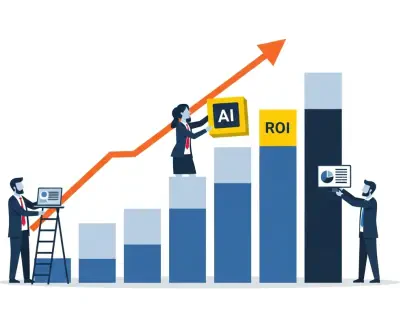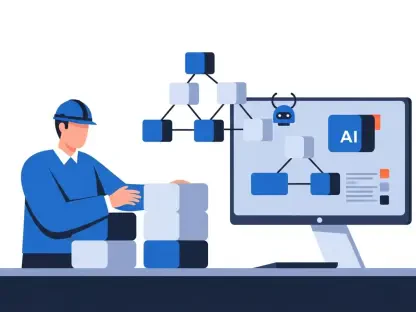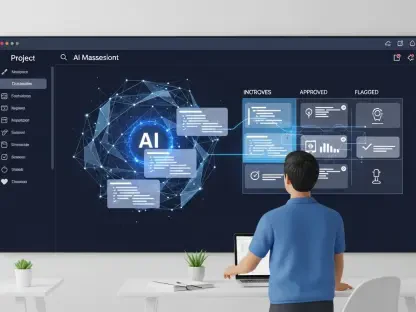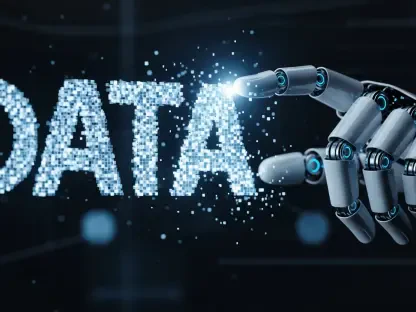In recent years, artificial intelligence (AI) has emerged as a transformative force across various sectors, such as healthcare, finance, and manufacturing. Its potential in code modernization, where extensive and complex codebases must be updated and maintained at scale, is particularly intriguing. The process is akin to assembling a puzzle, where each piece represents critical, structured data essential for modernizing software effectively. AI’s role in this landscape hinges on its ability to manage vast amounts of data, transforming outdated code efficiently while ensuring the dynamic interdependencies within software are properly understood and maintained. This article explores the intricacies of AI-driven code modernization, emphasizing the indispensable role of data in enhancing AI’s capabilities to refactor and upgrade codebases significantly.
The Role of Data in AI’s Success
For AI to transform legacy codebases efficiently, it must be equipped with structured and contextual information—the intelligence within the software code. Data encompasses not just lines of code but also an understanding of dependencies and logic relationships inherent in large-scale software systems. Without this comprehensive dataset, AI’s efficacy diminishes, making it unable to address the requirement for nuanced transformations and complex interdependencies. The data serves as a foundation, ensuring AI systems transcend superficial code suggestions and delve into detailed, scalable transformations. Access to enriched data elevates AI’s capacity to undertake large-scale software re-engineering, ultimately delivering results that are both effective and sustainable.
Software is increasingly recognized not as static text but as a vibrant, interconnected entity requiring profound awareness. AI must move beyond code snippets to embrace a holistic understanding of various components and their intricate relationships. Enhancing AI’s capability to scan and transform code at scale necessitates this shift towards involving deep and enriched data that speaks to every element—from dependencies to logic flow. This deep understanding paves the way for impactful code modernization, where upgrades are seamless, inefficiencies are minimized, and dependencies are flawlessly maintained. The emphasis on innovative data handling becomes the cornerstone of scalable and impactful AI-driven code modernization.
Beyond Abstract Syntax Trees
Traditional methods of code analysis, such as Abstract Syntax Trees (ASTs), represent only a preliminary step in transitioning from treating code as raw text to a refined approach. While ASTs have been instrumental in providing syntax-aware views of code, they fall short in terms of contextual depth required for intricate tasks such as vulnerability detection. ASTs might inaccurately flag security issues, like wrongful identification of ‘Logger’ references, due to their inability to distinguish between different libraries. This deficiency highlights the necessity of a more comprehensive representation capable of understanding the holistic environment within which the code operates, bridging the gap that ASTs leave.
Lossless semantic trees (LSTs) represent a significant advancement in code representation. Unlike ASTs, LSTs within the OpenRewrite project offer a nuanced, machine-readable view of code that accentuates not just syntax but environmental metadata as well. This model includes varied elements such as types in use, transitive dependencies, build tools, and configuration files, providing a rich dataset conducive to accurate code transformations. By ensuring that transformations are both syntactically correct and semantically meaningful, LSTs empower AI systems to execute tasks with a higher degree of reliability and precision. They form an essential pillar in realizing scalable and impactful code modernization, equipping AI to operate proficiently across diverse enterprise environments.
Transition to Agentic AI
A significant transformation in AI-driven code modernization is the move towards agentic AI. Unlike traditional passive assistants, agentic AI refers to systems designed to plan and carry out tasks autonomously. These AI systems are capable of devising and executing complex strategies independently, a vital evolution for the modernization of extensive codebases. However, this capacity is heavily dependent on two crucial components: high-quality data and deterministic execution paths. These elements enable AI systems to undertake rigorous, reliable actions, reducing inconsistencies and instilling confidence in automated transformations.
The advancements in the past year, particularly the introduction of tool-function calling paradigms such as the Model Context Protocol (MCP) and the OpenAI agent framework, illustrate significant enhancement in AI’s functionality. These frameworks allow AI systems to integrate the predictive precision of large language models with the meticulousness of deterministic programming, facilitating accurate and user-transparent software transformations. AI agents, empowered by these multifunctional tools, extend their capabilities, accessing pre-existing OpenRewrite recipes that guide predictable code manipulations through the enhanced LST representations. This amalgamation of predictive and deterministic tools is crucial for ushering in a new era of autonomous, scalable codebase modernization.
The Power of Deterministic Tools
Integrating deterministic tools, particularly pre-programmed recipes from the OpenRewrite project, substantially bolsters AI’s capability in real-world code transformations. These recipes offer AI agents a varied toolbox for performing targeted tasks, such as upgrading obsolete frameworks, substituting deprecated APIs, or executing comprehensive security vulnerability scans across expansive codebases. By transitioning from mere code suggestions to orchestrating effective and tangible transformations, these agents leverage deterministic toolsets to ensure each code change is reliable, predictable, and consistent.
Through tool calling, AI agents actively engage in evaluating the scope of tasks, activating appropriate tools, and integrating outcomes into their analytical processes. This approach transforms AI systems into not just problem solvers but orchestrators of real-world impact. They autonomously navigate complex scenarios, evaluate possible actions, execute necessary changes, and evaluate results to ensure ongoing, scalable transformation within code environments. The emphasis on deterministic tools underscores the narrative that scalable transformation emanates not purely from AI’s generative potential but through the sophisticated interplay of precise data and dependable execution paths.
Embracing Transformative Technology
For AI to effectively transform legacy codebases, it requires structured and contextual information—the intelligence within the software code. This involves not just lines of code but also an understanding of dependencies and logic relationships in large-scale systems. Without this data, AI’s ability to perform nuanced transformations and navigate complex interdependencies is limited. Such data form a foundation, enabling AI to move beyond superficial code suggestions and engage in detailed, scalable transformations. Access to enriched data enhances AI’s capacity for large-scale software re-engineering, delivering results that are both effective and sustainable.
Software isn’t just static text but a dynamic, interconnected entity requiring profound understanding. AI must shift from mere code snippets to embracing full comprehension of components and their intricate relationships. Improving AI’s capability to scan and transform code at scale requires this focus on enriched data, covering everything from dependencies to logic flow. This deeper understanding enables impactful modernization—where upgrades are seamless and dependencies maintained. Innovative data handling is key to achieving scalable and impactful AI-driven code modernization.









